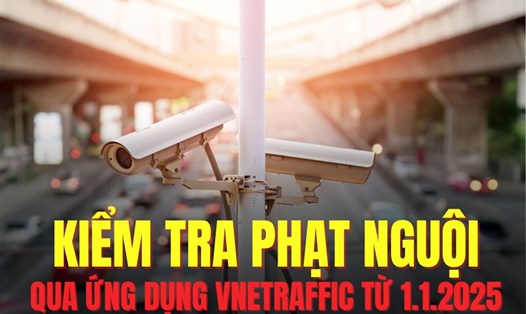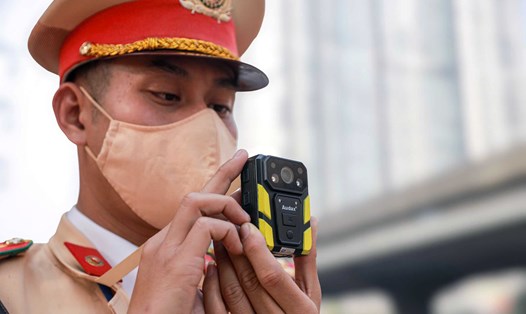Decree 176/2024/ND-CP of the Government, effective from January 1, 2025, allows the Ministry of Public Security to support individuals and organizations providing information reflecting administrative violations of traffic safety and order.
Accordingly, the expenditure for this content shall not exceed 10% of the administrative fine and shall be a maximum of 5 million VND/case.
The Traffic Police Department (Traffic Police, Ministry of Public Security) is developing specific regulations to guide payment for those who provide information on violations and payment criteria for each content.
Therefore, information about individuals receiving bonuses for providing information and images of traffic safety violations on social networks recently is incorrect.
Regarding this regulation, a representative of the Traffic Police Department (Ministry of Public Security) said that receiving information and images from people to verify and handle violations in the field of road traffic safety and order has been carried out in recent times.
Regarding the receiving unit, the Traffic Police unit is responsible for publicly announcing: Location, postal address, email box, electronic information portal or website, social network account, hotline phone number of the unit for individuals and organizations to provide information.
In addition, the Traffic Police unit will organize 24/7 duty to receive and collect data provided by individuals and organizations.
Traffic police units that receive and collect data include: Traffic Police Department; Traffic Police Department; Traffic Police - Order Team of district-level police.
People can also provide information and images of violations by installing the VNeTraffic application developed by the Ministry of Public Security.
Regarding the process of collecting and using data (information, images) provided by individuals and organizations, it is implemented according to the provisions of Decree No. 135/2021/ND-CP.
Accordingly, the collected data must ensure: Not infringing on the freedom, honor, dignity, privacy, personal secrets, other rights and legitimate interests of individuals and organizations as prescribed by law.
At the same time, the data must objectively, accurately and honestly reflect the violation, time and location of the violation.











